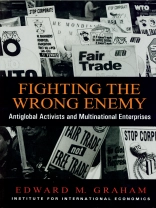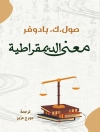Antiglobalist forces have been gaining greater momentum in recent years in their efforts to reverse what they view as the negative effects of an integrating global economy. Their influence was felt earlier when efforts to create a Multilateral Agreement on Investment (MAI) ended in failure in 1998 after France left the bargaining table at the Organization for Economic Cooperation and Development, effectively killing the initiative. In this book, through an evaluation of the MAI itself and the issues raised by its opponents, Edward M. Graham takes a fresh look at the growing backlash against globalization.
He first explores whether the MAI negotiations failed due to political maneuvering by antiglobalist nongovernmental organizations (supported by US organized labor) or because of irreconcilable differences among the negotiating parties over the substance of the issue of foreign direct investment. He then objectively and thoroughly assesses antiglobalist assertions that the activities of multinational firms have had negative effects on workers both in the home (investor) and host (recipient) nations, with a special focus on developing nations. An important finding is that multinational firms tend to pay workers in developing nations wages that are significantly above prevailing wages. Graham then examines the issue of globalized economic activity and the environment, finding that economic growth in developing nations can lead to increased environmental stress but also finding that foreign direct investment can lead to reductions in this stress. He finds that the worry of many environmentalists of a ‘race to the bottom’ is not borne out by the evidence. The final chapters assess whether or not a negotiation to create a comprehensive agreement on investment should be included in a multilateral negotiating round at the World Trade Organization in the near future. The interests of developing nations in this agenda are given special attention. Graham indicates that, while many developing nations would accept such rules, it might nonetheless be premature to press for a comprehensive agreement at this time. Rather, a limited investment agenda might be both more feasible and more productive.
Mengenai Pengarang
Edward M. Graham (1944–2007) was a senior fellow at the Peterson Institute from 1990 to 2007. He also taught concurrently as adjunct professor at Columbia University in New York. Previously he was an economist at the US Treasury and taught full-time in the business schools of several US universities (MIT, University of North Carolina Chapel Hill, Duke University, among others). While serving at the Treasury, he was seconded for two years to the Organization for Economic Cooperation and Development (OECD) in Paris. He also served as visiting or adjunct faculty at the University of Virginia, Charlottesville; Stanford University (Washington Program); The Johns Hopkins University; Seoul National University; Harvard University (John F. Kennedy School of Government); INSEAD (European Institute of Administration, Fontainebleau, France); and the University of Paris I (Pantheon/La Sorbonne). His research interests have included foreign direct investment, international competition policy, and the industrial organization of major Asian economies.












